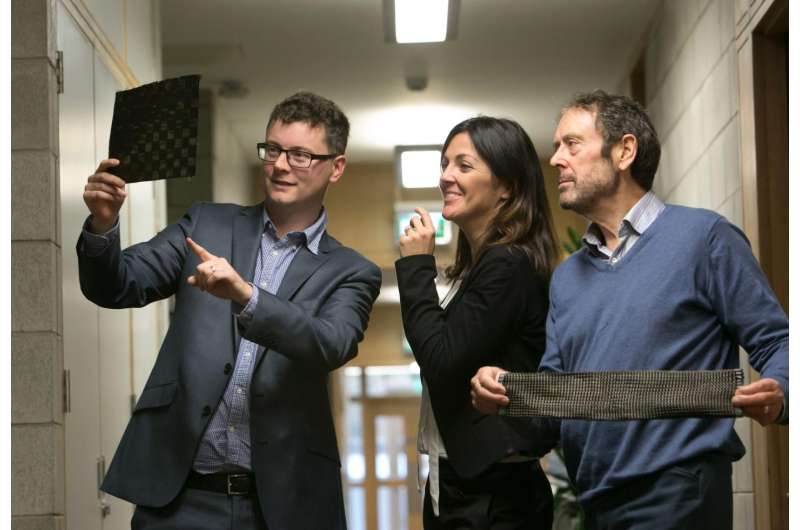EU researchers aim to halve CO2 footprint of carbon fiber production

Researchers from across Europe, led by University of Limerick (UL), Ireland, have begun a project to produce carbon fiber from forestry by-products.
Carbon fiber is a reinforcement which when added to plastic improves its mechanical properties thereby forming a composite material. Composites are used in many products including automotive parts and wind-turbine blades. However, carbon fiber is currently produced from petroleum which is expensive and detrimental to the environment.
The LIBRE project, led by Dr Maurice Collins of the Stokes Labs, Bernal Institute at UL, aims to create carbon fiber materials in a cost-effective and more environmentally friendly way, by producing them from a naturally derived wood product called 'lignin'.
"The production of carbon fiber from lignin will allow us to move away from the reliance on fossil fuel," Dr Collins explained.
The strength-to-weight ratio of carbon fiber offers excellent potential to reduce the weight of products including vehicles, with consequent saving of fuel. Currently, the cost of carbon fiber makes it prohibitive for widespread use. The LIBRE project is expected to reduce production costs sufficiently to find mass-market applications for carbon fiber. This will enable European producers to rely less on imported precursors and imported carbon fiber thereby securing an indigenous and sustainable European carbon-fiber manufacturing base.
"Together, the project partners will create new innovative materials and manufacturing processes capable of lowering the cost of end products by 30% while cutting in half the CO2 footprint of carbon fiber production," Dr Collins added.
According to Patrick Barrett, Department of Agriculture, Food and Marine, Ireland and National Contact Point for Bio-Based Industries, "Dr Maurice Collins' successful award under the Bio-Based Industries Public Private Partnership is a great example of a leading Irish academic talent aligning with industry to develop high-value products from valorisation of forestry by-products. This allows for business diversification, provides opportunities for jobs, growth and investment in the Irish economy and reduces the need for fossil fuel use for product development with the use of biobased replacements such as from forestry side-streams".
Irish wind-energy company Eirecomposites and automobile manufacturer Fiat are among the end users for these products, which are expected to be brought to market within four years.
Dr Terry McGrail, Director of IComp, the Irish Composites Centre, added "the global market for composite materials in 2016 had a value of around US$80 billion with a projected average compound annual growth rate of approximately 7% per annum across diverse sectors ranging from aerospace to automotive and construction. This emerging composites market offers many opportunities for Irish companies and the Enterprise Ireland Technology Centre programme is providing industry with a significant level of support through IComp".
Provided by University of Limerick




















